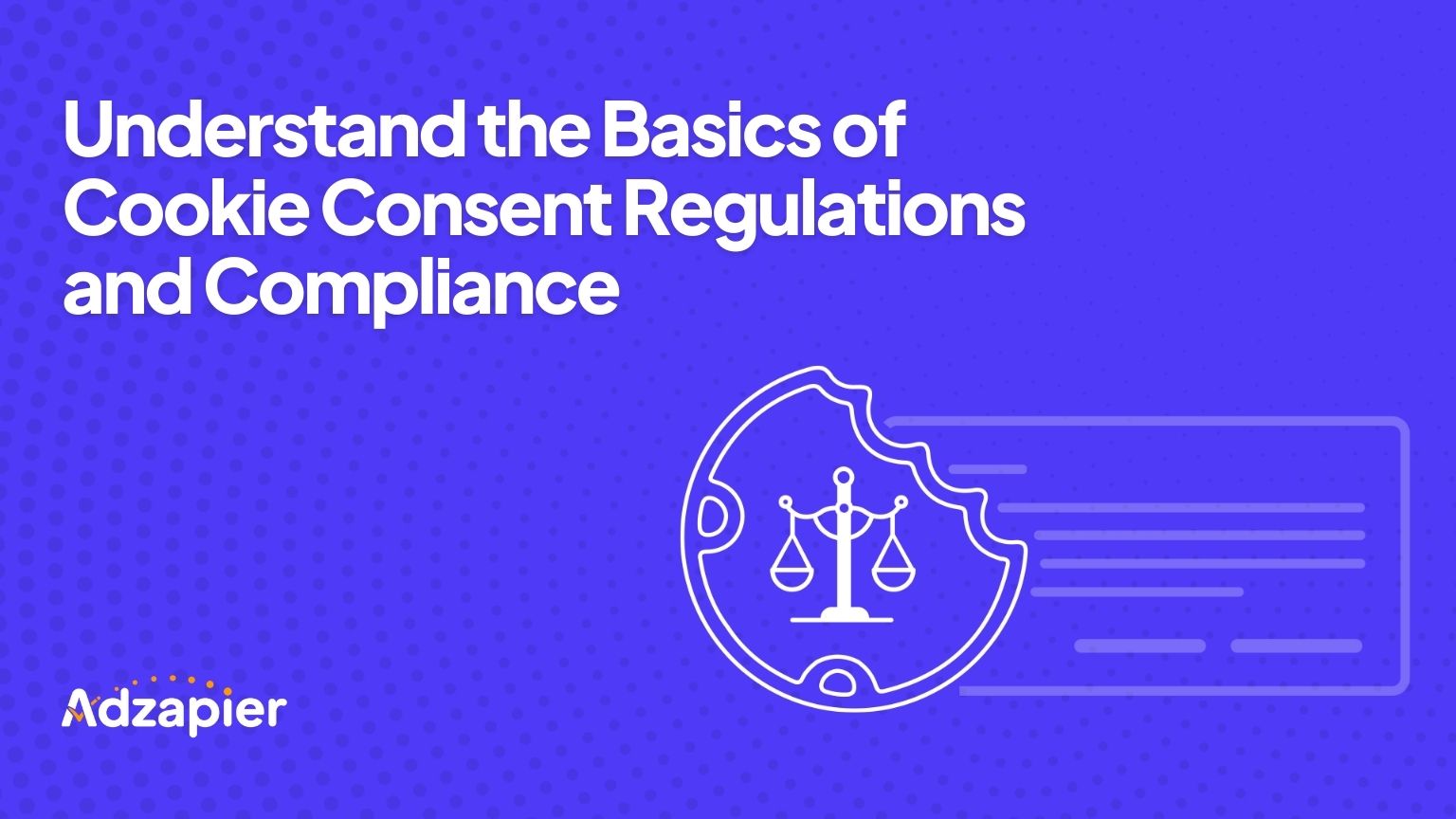Understanding the Basics of Cookie Consent Regulations and Compliance
 Promotion Adzapier
Promotion Adzapier
As a business owner, you may have heard the term "cookie consent regulations" thrown around in recent years. But what exactly are these laws, and why are they important for your business? In this post, we'll cover the basics, including what they are, why they matter, and how to comply with them.
Before we dive into the details of looooo, let's first define what cookies are and why they're used. Cookies are little files stored on a user's device when they visit a website. They can be used for a variety of purposes, such as remembering user preferences, tracking user behavior for marketing purposes, or even helping a website to function properly.
It’s important to obtain user consent before using cookies on your website. This is where cookie consent regulations come into play. These regulations dictate how website owners must obtain and manage user consent for the use of cookies.
What are cookie consent regulations?
There are quite a few laws and regulations that govern cookie consent these include:
The General Data Protection Regulation (GDPR) - European Union
The ePrivacy Directive (Cookie Law) - European Union
The California Consumer Privacy Act (CCPA) - United States
Personal Data Protection Law (PDPL) - Saudi Arabia
There are even more than those three just mentioned, but those are the main ones you’ve probably heard talked about in the headlines lately. These regulations require website owners to obtain user consent before using cookies, and they outline specific requirements for obtaining that consent.
For example, the GDPR requires that user consent be freely given, specific, informed, and unambiguous. Website owners must also provide clear and concise information about the types of cookies being used, their purposes, and any third-party data sharing that may occur. Under the CCPA, users have the right to opt out of data sharing, but under the GDPR, users must opt in.
Each law is a little different, but the principle behind them remains the same: protecting the online privacy and rights of your end users.
Non-compliance can result in fines and legal action, as well as damage to your company’s reputation. You could risk losing customer trust in your business if you do not stay in line with regulations.
How can your website implement cookie consent?
There are two main types of cookie consent: implied and explicit. Implied consent is assumed when a user continues to use a website without explicitly consenting to the use of cookies. Explicit consent, on the other hand, requires the user to take a specific action to indicate their consent (such as clicking a button or checkbox).
To obtain explicit consent, website owners must display a prominent banner or notice informing users about the use of cookies and providing a clear option to accept or reject them. It's also important to use clear and easy-to-understand language to explain the purpose of cookies and the implications of accepting or rejecting them.
In order to comply with regulations, your banner must also follow strict rules, like making rejecting cookies just as simple as accepting them. It also needs to have a clear, unambiguous cookie policy and a way for users to set and manage their cookie consent preferences.
What information should be provided in a cookie policy?
A cookie policy is a document that outlines the types of cookies being used on a website, their purposes, and any third-party data sharing that may occur. It's important to make this policy easy to read and understand, as users have the right to know what data is being collected about them and how it's being used.
In addition to the types of cookies and their purposes, a cookie policy should also include information about how long cookies will be stored, how to manage cookie preferences, and how to revoke consent.
How to manage cookies and revoke consent
Users have the right to manage their cookie preferences and revoke consent at any time. Website owners should provide clear and easy-to-access options for managing cookie preferences, such as a dedicated settings page or a link in the footer of the website.
To revoke consent, users should be able to easily clear their cookies or change their preferences using the settings provided by the website.
Basically, cookie consent regulations are an important aspect of website ownership that cannot be ignored. By obtaining explicit user consent and providing clear information about the use of cookies, website owners can prioritize user privacy, data protection and trust-building, while also avoiding legal and reputational risks.
The Adzapier solution
Adzapier offers a cookie consent banner solution that complies with cookie consent regulations around the globe. It’s easy to implement, and only takes a few minutes to set up. You can schedule a demo with one of our privacy experts today, and they will walk you through the whole process. Plus, we’ll throw in 14 days of free compliance. Don’t hesitate to call us today!
Subscribe to my newsletter
Read articles from Promotion Adzapier directly inside your inbox. Subscribe to the newsletter, and don't miss out.
Written by

Promotion Adzapier
Promotion Adzapier
We started Adzapier because we wanted to make the Internet a better place with more transparency and control for consumers over their own data. We are a team of tech wizards and marketing experts using data & privacy compliance to increase your consumer engagement, brand trust, and customer acquisition.